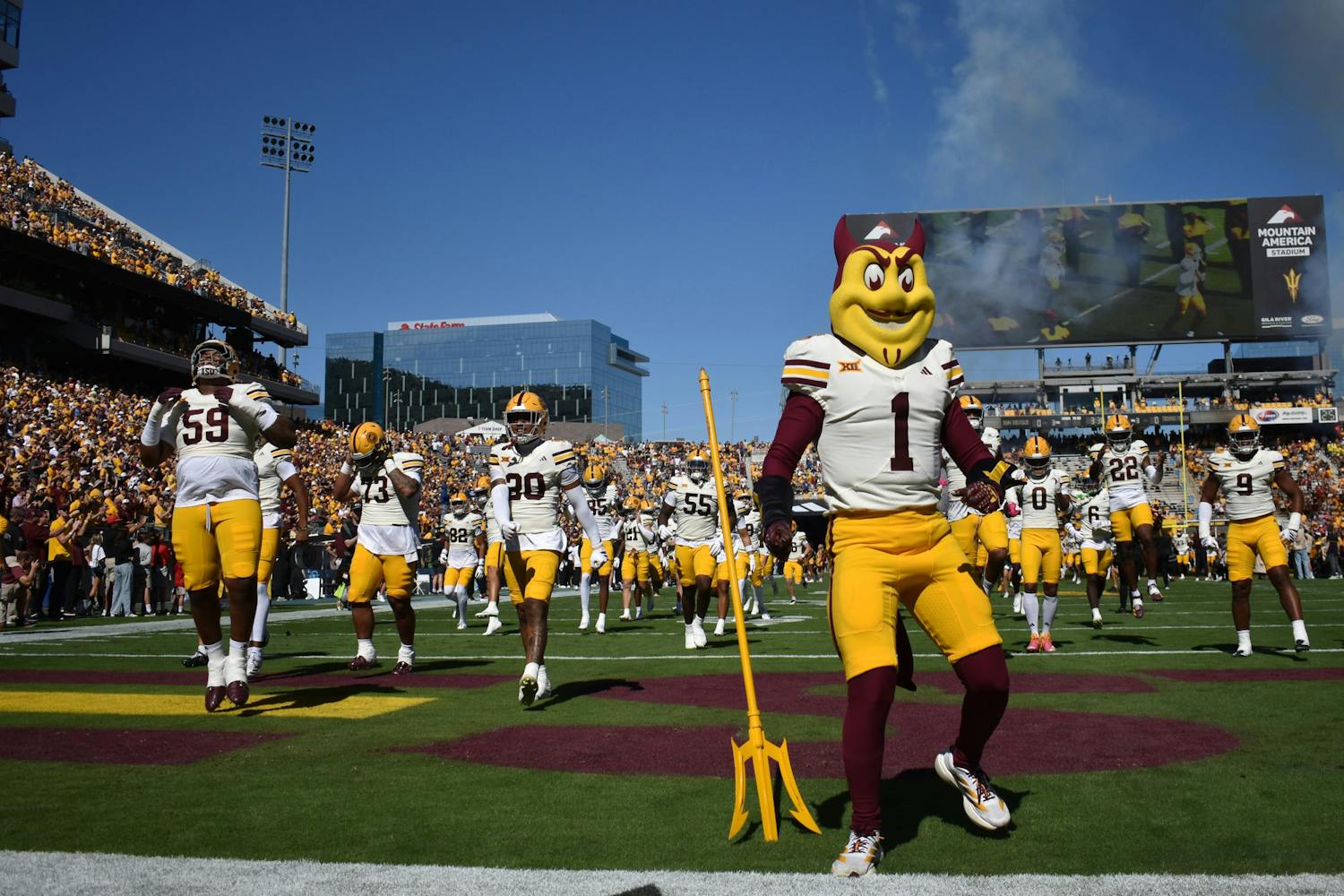Football games and their traditions are a staple of any college experience. The thrill of a touchdown, the spirited environment of people in the stands and the excitement of dressing up are all parts of the ritual.
Recently, however, one of these traditions has been linked to terms such as disrespectful, selfish and demeaning. Our student government is considering banning face paint at football games because of its possible negative connection to blackface — but is this a good enough reason to ban face paint entirely?
Yes, it can be offensive, and yes, it may seem like it can target a specific race, but is this really the reasoning behind students painting their faces on game day? Of course not. Unless people specifically write, speak or act in a way that is offensive to a specific race, why should face painting be seen as something negative? This is something that has been done for decades and is seen as a way of supporting a team, not hurting peers.
Would students really engage in a negative action in public when they have careers, future employers and résumés to worry about in college? It doesn’t seem right that students would want the term "racist" to be attached to their name with things like these at stake. If students really thought their reputations were at jeopardy, these types of actions would not even occur.
So why do students do it? For the same reason students paint their faces at basketball and soccer games, why students do it at high school sporting events and why people around the world engage in it during the Olympic games — to support their team and show pride. Sporting events divide along team lines, but there is no intention of dividing people of the same team or country. They bring people together to celebrate a good time, their teams and the athletes' effort.
During the Olympics, do people really think about the race they represent when painting their bodies or faces? No, they think about their country colors or the colors of their flag. The same applies to the football games at ASU. When students paint their faces for football games, it is tied to a theme of the game, colors of the teams or school pride. Never is it intended to be seen as racist or offensive.
Football games and showing pride for the school you attend are things all students can relate to. It is prime among the things many students refer to when describing what they look forward to in their college years.
Blackface has led to problems with ASU school activities in the past, so that may be an understandable reason to ban black face paint at football games. However, if students cannot even use school colors on their faces, this also seems to limit student’s freedom of expression. Face painting is a tradition performed among all universities in the nation and it is difficult to believe that all students at every university engage in this type of behavior to enforce racism and negative stereotypes.
We should have the liberty to express school pride and spirit.
Reach the columnist at tnunez1@asu.edu or follow her on Twitter @TayNunz
Editor’s note: The opinions presented in this column are the author’s and do not imply any endorsement from The State Press or its editors.
Want to join the conversation? Send an email to opiniondesk.statepress@gmail.com. Keep letters under 300 words and be sure to include your university affiliation. Anonymity will not be granted.
Like The State Press on Facebook and follow @statepress on Twitter.



